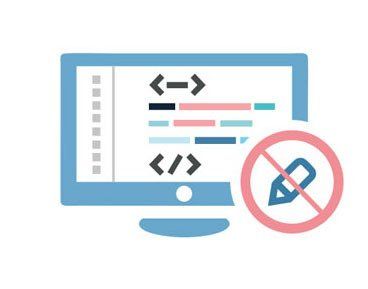Why DIY Website is a Bad Idea
Engage Team • June 19, 2020
Why should I spend so much on developing a custom website when I can develop it at dirt-cheap cost?
Oh yes! You may be right — but have you pondered over it deeply? What if your website builder suffers a malware attack, and it crashes?
I’m sure you’ll not have thought about this scenario. DIY website builder tools suffer from many such deficiencies.
Popular website builder tools, such as Weebly, Squarespace, or Wix do offer plenty of options to create a small website effortlessly at tempting costs. But they still stand no chance against a custom website developed by a professional agency.
Consider the following 5 reasons before opting for a website builder tool.
1. Page builders are terrible for business growth
SEO capabilities of website builders are very limited. These if used seriously limit your business growth in the future.
You must know that the HTML markups created by website builders are exponentially bloated compared to those created by professional website developers.
But how does this matter? I think it’s the pretty efficient and clean code writing process.
True! But this simplicity comes at an expensive price. Though a final website may look aesthetically great, the code powering them is often clumsy. This can make your website significantly slower.
2. No access to code
To fix any issue in your website, you require access to the source code.
But you don’t get this liberty in website builder tools. The maximum you have is the full access to frontend editor. You cannot make any fundamental change with such websites. With custom websites, however, you can achieve any goal.
Website management requires a variety of tasks, such as title and H1, H2 tags, URL slugs, structured data markups, canonical URLs, or meta descriptions. You cannot achieve this with DIY web tools.
3. Poor mobile friendliness
Though DIY websites claim to be mobile-friendly and responsive, but these features are not that practical. The reason is that a responsive or mobile-optimized web design uses CSS3 media queries to adapt to user’s device size, while website builders lack this feature.
4. Poor SEO
DIY builders are notorious for bad SEO capabilities. A huge negative for WIX and Squarespace is they don’t allow for a lot of technical SEO customizations. You cannot access or customize their sitemaps. All of these issues limit the technical SEO capability of a DIY website.
Many users also complained that Googlebot finds it difficult to crawl all pages of Wix or Weebly pages. Though they have tried to fix some of these issues such as shortening of URLs and upgrading codes, they continue to have only limited success.
5. Poor value for money
Overall, spending money on DIY website builders is a total waste of money, provided you have serious ambitions. Small businesses that are already constrained with capital, should never opt for such website builders. You may find them cheap initially, but they offer little value for what you pay. You’ll just get a little corner in the digital sphere and that’s all.
Summing up…
All of these issues discussed above make DIY websites a hugely underperforming website. If you have a long term growth plan, going for a DIY website builder tool will be a bad idea.

A website for small businesses should be designed in a way that could attract customers. From powerful headlines, delivery of the right marketing message, to a visual hierarchy and other key elements—every component of the puzzle should fall in place. The real reasons behind the sheer brilliance of a website lie in its layout or architecture. It’s actually the first stage of the website design where you decide which component will go where, what will be the layout style, size and website component. It defines the navigation path and specifies spaces where the most important elements such as headline, subheadings, images, videos, CTA buttons, forms and other elements will be placed.

So you have decided to launch a brand new website to augment your business. You certainly deserve a pat on the back for this smart decision. And since your tech team doesn’t have enough bandwidth or capability, you’re looking to get a contractor on board as fast as you can. But who should you be working with — a web development company or a freelancer? The decision can be tricky, and making the wrong choice here means your dream of a digital presence for your business can fail. A careful and thorough analysis of both options can easily reveal that hiring a web development company has a distinct and unbeatable edge over a freelance web developer. Here are 7 strong reasons for the former:







